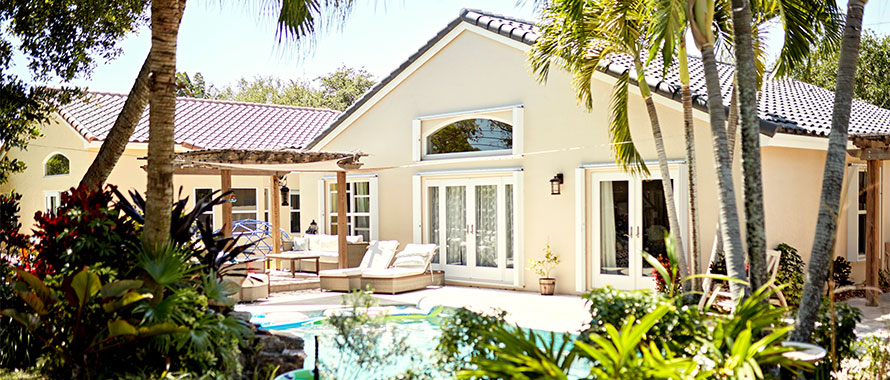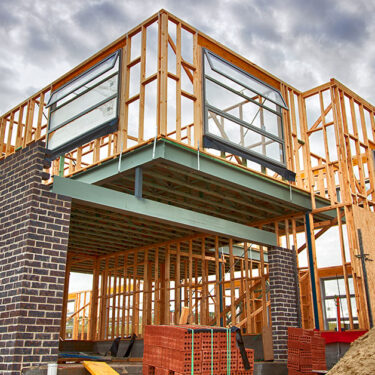Inside This Article:
- A group of teens threw an unauthorized party at a Palm Beach County Airbnb, causing an estimated $7,000 in damage.
- The damage included a broken front gate, missing blinds, and a burnt electrical outlet, in addition to lost income from a canceled future booking.
- Coverage under standard Homeowners Insurance policies may not apply to short-term rentals, so hosts should confirm they have proper coverage.
- Liability for guest injuries can pose an even greater risk for vacation rental owners, who may also benefit from Personal Umbrella Insurance.
- Coverage programs offered by rental platforms are not a replacement for proper insurance.
A raucous unauthorized teen party at an Airbnb in Palm Beach County, Florida, recently drew hundreds of partiers who caused about $7,000 in property damage. The homeowner told WPTV that he’s considering filing suit against the guest, with such damage as a broken front gate, missing blinds, a damaged pool patio, a broken window, and a burnt electrical outlet. He also lost future rental income due to a canceled booking.
Airbnb is investigating the incident and has suspended the guest, who may have used a parent’s ID to make the reservation without permission. The owner reportedly believed the home would be used for a “family barbecue” before neighbors sent photos of dozens of vehicles on the street and teens being charged admission at the door.
“I think this happens more often than we know,” said Jordan Theodoulou, Senior Underwriter, Personal Insurance, Burns & Wilcox, Woodland Hills, California. “Unfortunately, there are plenty of horror stories involving Airbnbs simply due to the uncertainty that comes with renting your home to strangers.”
This type of incident can trigger gaps in insurance coverage, as standard Homeowners Insurance policies would not typically cover property damage claims related to short-term rental use unless the policy was designed to include it. Homeowners should also understand that they can be held legally responsible for injuries that occur on their property.
“Regardless of the details of how this home was rented, an owner of a piece of property still has a legal liability exposure for anyone that steps on their premises — whether they are invited or not,” said Deanne Taylor, Manager, St. John’s, Atlantic Division, Burns & Wilcox, St. John’s, Newfoundland. “Even if the owner did not invite 200 guests, they have a responsibility to keep those 200 individuals safe.”

An owner of a piece of property still has a legal liability exposure for anyone that steps on their premises — whether they are invited or they are not.
Party damages ‘could have been much worse’
Despite the damage, the situation in Florida “could have been much worse,” Theodoulou said. “In my opinion, $7,000 is the least of their worries,” he added. “It is obviously not something any owner wants to take on, but the bigger issue would be some kind of liability, such as someone getting seriously injured, or some type of water damage.”
Taylor agreed, pointing out that the destruction could have escalated quickly if police had not broken up the party around 10 p.m. “That house could have been devastated or destroyed,” she said. “Things can get out of hand very quickly. He was extremely lucky, particularly because no one got hurt.”

That house could have been devastated or destroyed. Things can get out of hand very quickly.
A property owner’s Homeowners Insurance could respond to this type of situation if their policy was designed to cover short-term rental use. If a homeowner did not disclose that the home is being used for vacation rentals and purchase coverage that includes this risk, claims could be denied based on misrepresentation, policies could be negated, and the homeowner could be sued, putting their personal assets at risk, Taylor said.
“You could lose your investment and if you are sued personally, you could be required to pay damages to an injured third party that you might struggle to pay,” she emphasized. “If someone is catastrophically hurt, that could be millions of dollars. If your insurance company does not respond, who is going to pay that? You are.”
The risk of a million-plus-dollar loss also underscores the importance of Personal Umbrella Insurance, which can provide liability coverage over and above standard policy limits of $1 million to $5 million, Taylor said.
This is especially key for owners who have multiple properties, Theodoulou added. “That is extremely important,” he said.
How insurance covers short-term rentals
When purchasing Homeowners Insurance that can cover a home being used as an Airbnb, which is sometimes referred to as Dwelling/Fire Insurance or Short-Term Rental Insurance, disclosure of the use of the property is crucial, Theodoulou explained.
“You want to ensure you are with an insurance carrier that is aware you have this exposure and will cover you for that,” he said. “Many policies limit or totally exclude short-term rental exposure. If the home is not owner-occupied for a certain amount of time, coverage is void.”

Many policies limit or totally exclude short-term rental exposure. If the home is not owner-occupied for a certain amount of time, coverage is void.
If an insurance carrier finds out about the short-term rental use after a claim occurs, “it is very likely that claim could be denied — whether it is something small like this $7,000 vandalism loss, or something more serious where someone got injured,” Theodoulou said.
In Canada, vacation rental coverage is often unavailable under standard Homeowners Insurance policies and could need to be purchased as a form of Commercial Property Insurance or Commercial General Liability (CGL) Insurance. According to Taylor, opening up a home to short-term rentals could mean “you are leaving the Homeowners Insurance package wording behind and going to Commercial wording.”
In some cases, the services offered by the Airbnb host may determine what type of coverage is required; for example, a property rented out for overnight use only could be covered under Premises Liability Insurance, while hosts that offer extra services like food or activities could require CGL Insurance. “Always, always talk to a personal insurance advisor,” Taylor said. “If you are changing your property to a seasonal rental or listing it anywhere, fully disclose that and talk about your options so that if you have a claim, you will not have a problem.”
Market tightening but solutions still ‘readily available’
In Baltimore, Maryland, an Airbnb host told WMAR-2 News in May that the company initially denied his claim for damages under its AirCover protection program after guests reportedly stole thousands of dollars’ worth of property and caused major damages to the home. Though the owner eventually resolved the issue with Airbnb after the news outlet got involved, it is one example of how damage protection programs offered by vacation rental platforms may not be what owners expect.
Many homeowners mistakenly believe AirCover is a replacement for Homeowners Insurance, Taylor said. “The company actually states that it is not a substitute for insurance,” she said, noting wildfire damage and other losses that would not typically be covered. “These programs can be great as an extension, but not as the primary way of covering your liability exposure and your fiduciary investment in the property.”

Unfortunately, there is no 100% safeguard in terms of who you are going to get and what they will do when staying at your property. Homeowners should talk with their insurance broker and make sure their policy is set up to cover this kind of risk.
While the market for policies that cover short-term rentals is tightening somewhat, with fewer carriers willing to take on the risk or adding more stringent underwriting guidelines, “solutions are still readily available,” Theodoulou said. The market is similar in Canada, Taylor said.
News headlines like the Airbnb damage case in Florida should remind hosts to vet their potential guests thoroughly, Theodoulou said. “Unfortunately, there is no 100% safeguard in terms of who you are going to get and what they will do when staying at your property,” he said. “Homeowners should talk with their insurance broker and make sure their policy is set up to cover this kind of risk.”










